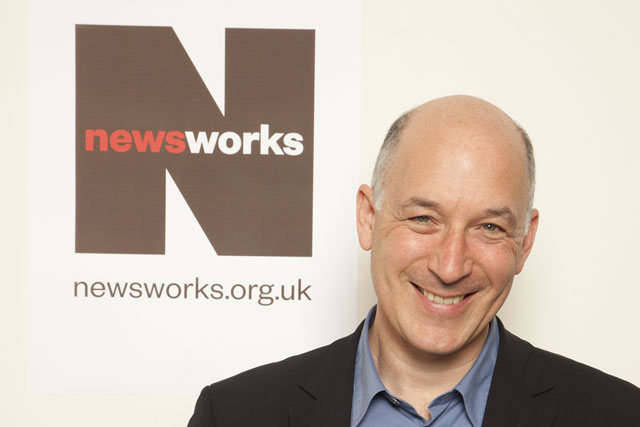Whether you were a paid-up member of the cycling fraternity or not, it was a joy to hear David Walsh speak at our Shift North conference last month.
Walsh, chief sports writer at The Sunday Times, delivered a keynote of spellbinding intensity at Newsworks' first Manchester conference. He told the story of his 13-year mission to bring down Lance Armstrong, seven times winner of the Tour de France and a cyclist he was convinced was the biggest fraud in the history of sport.
No one who was there could fail to be seduced by his combination of uncompromising determination and self-deprecating humour. So influential was his investigation that it has been made into feature film by Stephen Frears, due for release next spring, with Walsh played by Chris O’Dowd.
Walsh needed every ounce of that determination – along the way his newspaper lost a £1 million libel case and he was ostracized by the cycling establishment. Few stories better illustrate the unique role played by the UK’s newspapers at their best than his exposure of Armstrong as a lying drugs cheat.
This blog isn’t a crude advert for the power and stamina of Walsh, The Sunday Times and the newspaper sector… not entirely at any rate. Walsh's story taps into a broader tale of influence – not just of the newspapers, but of cycling itself.
During the 13 years that The Sunday Times conducted its campaign, the passion for cycling boomed in the UK. Approaching one million people now commute regularly by bike and seven million each month. The sport has moved from obscurity to the front pages. Serious amateur races are commonplace and Bradley Wiggins has become a household name.
It wasn't long ago that the closest we cyclists got to the media boardroom was when a courier took a wrong turning between reception and the post room. Now there are cyclists at all levels of the UK's media industry. Even Lionel Barber, editor of the Financial Times, is now writing about slipping into Lycra and panting up the Pyrenees.
Part of cycling's appeal is its effect on the workplace. Research carried out for Cyclescheme recently found that people who ride to work are more productive, more focused and even feel more energised than their colleagues. But commuting is just a convenient form of transport – a more attractive option than a journey underground. It is cycling as a sport that has become a passion for so many.
Group cycling is a shared experience unlike any other. Apart from the obvious fitness benefits, riding in a group opens up conversations and forges new bonds and relationships. Hierarchies disappear and camaraderie emerges. Before long it becomes an obsession.

The obsession among media leaders over here follows in the footsteps of Silicon Valley, where for the past 10 years and more, the Technorati have been forming mini-peletons in the hills of Northern California, discussing deals alongside carbon forks. But the roots of modern-day road cycling lie in Europe, where the cycling greats have been feted by their media for generations.
For Robert Elms, the journalist and cyclist, these roots help to explain its appeal among middle-aged men in particular.
Elms says: "The whole thing feels suitably sophisticated and continental, with its French terminology and Italian styling, yet it brings out the boyish stamp collector/train spotter in you as you become increasingly fanatical about Colnago frames, Campagnolo group sets, Belgian rouleurs and French baroudeurs."
The explosion has also been fuelled by Rapha, the 10-year-old British cycling clothing company, founded by former brand consultant Simon Mottram. Customers for his stylish gear include a roll call of fashion designers, investment bankers and television presenters, as well as the great and the good of media land. Many of us are cycling this week on a 100-mile pilgrimage to Babington House. Where else?
Just about any way you look at it, cycling is a force for good. And we are going to be exploring the phenomenon later this month at our cycling dinner with Simon Mottram and David Millar, one of the UK’s top cyclists, in conversation with specialist journalists from The Times and The Guardian.
One of the challenges we face is to make more of the cycling ecosystem – more and better partnerships tapping into the bikegeist. In the media sector, isn't it good to know there are still opportunities going begging?
Rufus Olins is chief executive of Newsworks.

